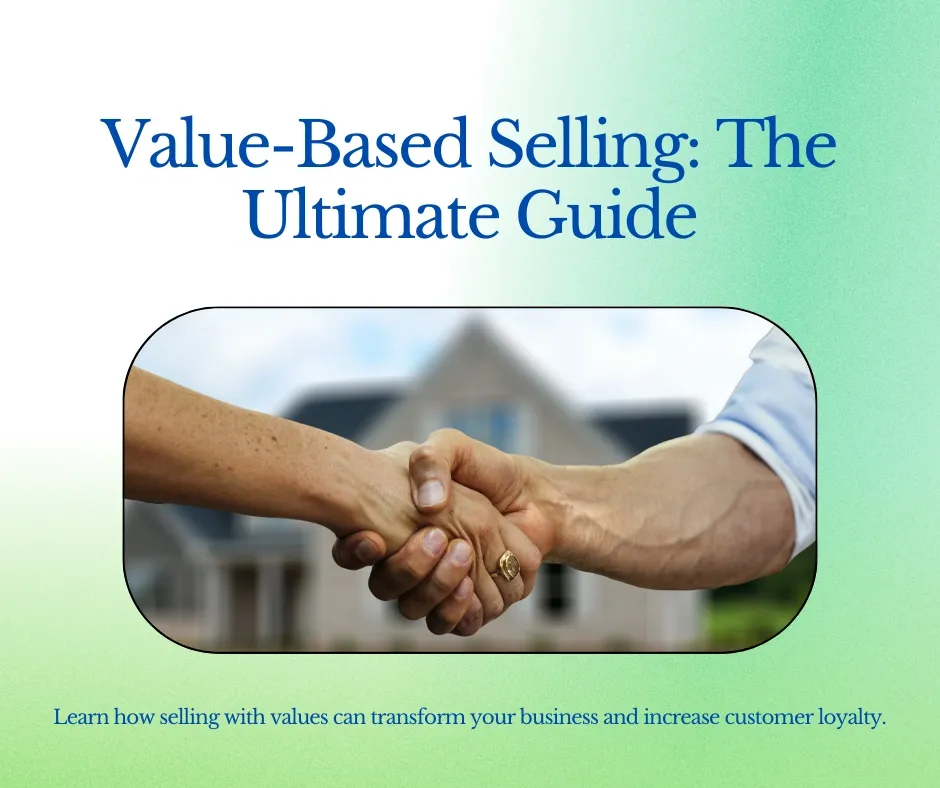Today sales isn’t, merely pitching a product’s features or competing primarily on price is no longer sufficient. Instead, successful salespeople are shifting their strategies towards a more customer-centric approach called value-based selling. But what exactly is value-based selling? Where is it best utilized? And what are its benefits and drawbacks? Let’s dive in.
What is Value-Based Selling?
Value-based selling is a sales methodology that revolves around the unique value a product or service provides to a particular customer. Rather than merely listing features or touting the cost, value-based selling seeks to understand the customer’s challenges, desires, and needs, and then positions the product or service as the optimal solution to those specific issues.
The primary objective of this strategy is to demonstrate how a product or service can offer tangible ROI (Return on Investment) to the potential buyer. The salesperson seeks to make the customer envision a future where their pain points are alleviated or their goals achieved, primarily due to the value derived from what’s being sold.
Where is Value-Based Selling Best Used?
While value-based selling can be applied to many scenarios, there are specific sectors and situations where it’s particularly effective:
1. B2B (Business-to-Business) Sales: As these deals often involve high stakes, substantial amounts of money, and long-term commitments, understanding and delivering value is critical. For instance, a company selling enterprise software would focus on how their solution increases efficiency, reduces overhead costs, or boosts productivity.
2. High-Ticket B2C Sales: Luxury items, high-end vehicles, real estate, and premium travel packages are examples where consumers are not just buying a product but an experience, status, or a particular lifestyle. A realtor, for instance, won’t just sell a home based on its rooms and amenities but on its potential to be a dream home, its location, and the lifestyle it offers.
3. Complex Sales Cycles: When the sales process involves multiple stakeholders, extended evaluation phases, or tailored solutions, value-based selling becomes essential. Salespeople must address the specific needs of various decision-makers and influencers in the buying organization.
Benefits of Value-Based Selling
1. Higher Profit Margins: By emphasizing value over cost, salespeople can justify premium pricing. Customers are often willing to pay more if they perceive a higher value in the solution provided.
2. Stronger Customer Relationships: This methodology requires salespeople to deeply understand their customer’s business or personal needs. This level of understanding often leads to trust, fostering long-term relationships.
3. Competitive Differentiation: In industries where products or services are similar, showcasing unique value can set a company apart from its competitors.
4. Shorter Sales Cycles: When customers understand the tangible value they’ll receive, they’re often quicker to make purchasing decisions.
5. Increased Customer Satisfaction: Delivering on promised value ensures that customer expectations are met, leading to higher satisfaction and loyalty.
Drawbacks of Value-Based Selling
1. Requires Deep Product and Customer Knowledge: Salespeople must fully understand what they’re selling and must also invest time in researching potential customers. Not all salespeople may be equipped or inclined to make this effort.
2. Potential for Overpromising: In their zeal to demonstrate value, some salespeople might promise more than the product can deliver, leading to dissatisfied customers down the line.
3. Not Suitable for All Products: Commoditized products, where differentiation is minimal, might not benefit much from value-based selling.
4. Time-Consuming: Crafting a value-based proposition can be time-intensive, especially if it needs to be customized for each potential client.
5. May Not Always Align With Buyer’s Criteria: Some buyers, especially in B2C markets, might prioritize other factors like brand reputation, aesthetics, or trends over perceived value.
The Final Word
Value-based selling represents a shift from product-centric selling to customer-centric selling. In an era where products and services are increasingly commoditized, showcasing unique value is essential to stand out. While the approach comes with its set of challenges, when executed correctly, it can lead to increased revenues, loyal customers, and a distinct competitive advantage. Like any strategy, businesses should assess its applicability to their situation and train their sales teams adequately to harness its full potential.
For more information or to discuss your particular situation contact us at the following…
www.transformativesalessystems.com
765-623-5623
info@transformativesalessystems.com
Register for a free trial of the #1 Sales Specific Assessment, click the link below
https://info.objectivemanagement.com/ExpressScreenTrial.aspx?DistNum=599&L=1

